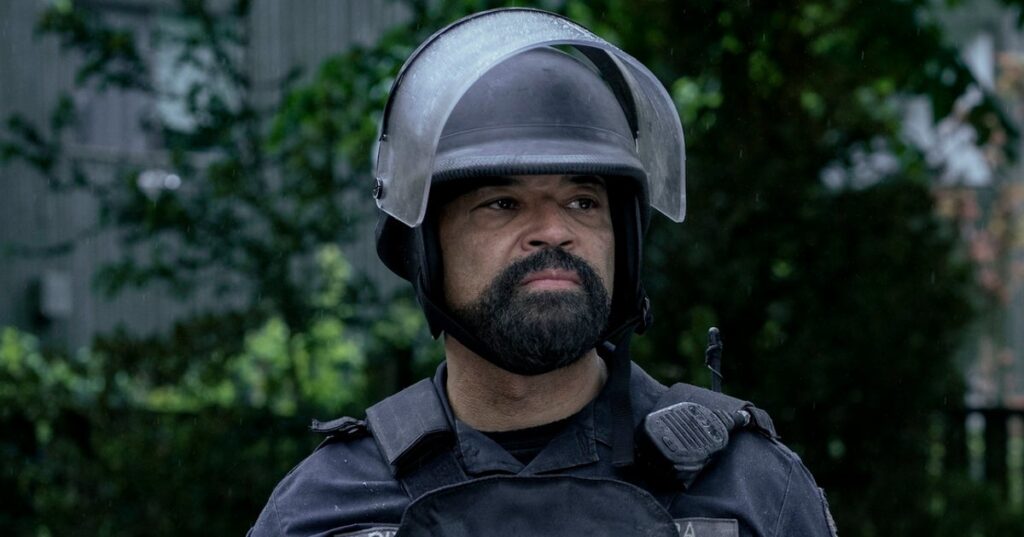Spoilers ahead for “The Last of Us” Season 2.
“The Last of Us” is known for being one of the most brutal video games around, and HBO’s adaptation is no exception. In its second season, the series has already killed off its protagonist, Joel (Pedro Pascal), in a barbaric execution. Now, in Episode 4, we’re getting our first look at the violent conflict that will define much of the story in Season 2 and beyond.
Halfway through the episode, we join Isaac (Jeffrey Wright), leader of the Washington Liberation Front (W.L.F., aka “Wolves”), which rules over Seattle with an authoritarian fist. The W.L.F. is in a protracted war with the cultlike Seraphites (referred to as “Scars” due to the self-inflicted wounds on their faces), and Isaac is torturing a Seraphite for information when they begin to debate the origins of their conflict.
“You put an arrow in a little boy’s head,” Isaac shouts.
“You kill our children,” the Scar replies.
“Never by choice,” Isaac says. “You train them to shoot at us.”
“Because your Wolves kill them.”
“Because you train them to shoot at us.”
“Because you broke the truce—”
Isaac cuts him off: “Because you broke the truce. Because you broke it, because we broke it. I’m not playing your little chicken-and-egg games today, Scar.”
This is our first hint at the larger parameters of the Wolf-Scar conflict, which is so complex nobody can say for sure who threw the first stone. In a 2018 interview with Kotaku, the game’s director, Neil Druckmann, teased how this one detail underlines the entire story.
“We’re making a game about the cycle of violence, and we’re making a statement about violent actions and the impact they have on the character that’s committing them and on the people close to them,” he said.
After the game’s release in 2020, however, it became clear that Druckmann was referring to a very specific conflict: Israel and Palestine. In an interview with The Washington Post, Druckmann revealed that the game was partially inspired by his experience growing up on an Israeli settlement in the West Bank and the deep-rooted hatred that he felt defined that conflict.
“I landed on this emotional idea of, can we, over the course of the game, make you feel this intense hate that is universal in the same way that unconditional love is universal?” Druckmann said.
It’s still unclear if the HBO adaptation will stay true to those inspirations. After all, the show has already made some notable changes to its source material. But if this one scene is any indication, “The Last of Us” Season 2 isn’t shying away from the game’s thorny geopolitical message.
“The Last of Us” airs on HBO on Sunday nights. It is also streaming on Max.
Read the full article here


